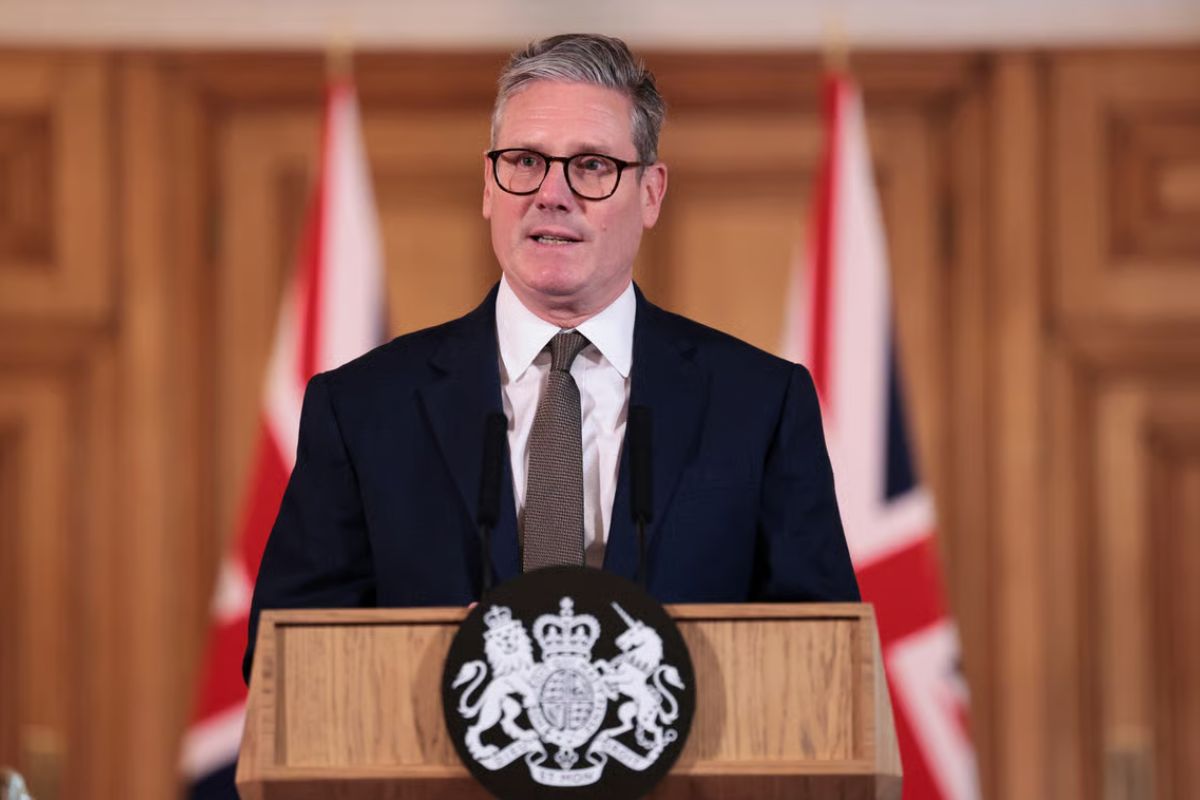The UK’s National Security Strategy 2025: A Clear-Eyed Response to Global Threats

In June 2025, the UK government published “National Security Strategy 2025: Security for the British People in a Dangerous World,” a stark reassessment of the nation’s security posture. The strategy warns that for the first time in many years, the UK must “actively prepare for the possibility of the UK homeland coming under direct threat, potentially in a wartime scenario.” After decades of post–Cold War optimism, officials now acknowledge an era of “radical uncertainty” marked by intensifying great-power competition, proxy conflicts and hybrid attacks.
Russia’s war in Ukraine is cited as the clearest example of this new threat landscape, alongside rising tensions in the Middle East and Indo-Pacific. Even state-adjacent threats—from Iranian-backed assassination plots at home to Houthi missile attacks on shipping—are increasingly on the agenda. In short, the UK now views defense not as a background concern but as “the first responsibility of government”—to ”be met with the biggest sustained investment since the Cold War.
An All-of-Society Security Doctrine
To meet these challenges, the NSS calls for a whole-of-society mobilization reminiscent of the wartime spirit. The strategy explicitly urges “partnering with all parts of society—business, academia, and devolved and local governments” in a new resilience effort on the way to 5% GDP defense spending. Cabinet Office Minister Pat McFadden summed this up in Parliament: the plan is “clear-eyed and hard-edged about the challenges we face.”
Every citizen and institution is expected to play a role in national security. For example, the government will run annual resilience exercises and public awareness campaigns so that Britons are better prepared for crises. This echoes Cold War unity—“nothing “less than national unity” on emerging threats—but updated for cyber and biological risks. As McFadden noted, the strategy will “protect the UK at home and abroad” and inject “more investment in artificial intelligence (AI) and defense” across society.
Defensive Investments: From Biosecurity to AI
The NSS pairs its martial rhetoric with concrete spending plans across domains. Key initiatives include
-
Biosecurity: Over £1 billion will fund a network of National Biosecurity Centers to guard against biological attacks or pandemics. A new Biothreats Radar and Microbial Forensics Consortium is also being established to detect and analyze novel pathogens.
-
Energy & Industry: Huge investments in maritime and nuclear infrastructure—reviving shipbuilding and building new nuclear plants—aim to secure home-grown energy and hard-to-access materials. For example, the UK has banned Russian oil and gas imports and is creating a global uranium supply chain free of hostile influence. At home, barriers to onshore wind and solar projects have been lifted to boost renewables.
-
Advanced Technology: The government is building a sovereign AI agenda. Defense and intelligence services receive funding to expand AI capability, and a new National Cyber Force will hunt hostile cyber campaigns. The strategy tasks industry and government to accelerate AI adoption, deepen data research, and shore up digital infrastructure against state-led cyberattacks. It even plans a Digital Targeting Web to network weapons and sensors in combat using AI.
Each of these investments is aimed at deterring and responding to 21st-century threats. This dovetails with NATO commitments: at the June 2025 NATO summit, member states (led by the UK) pledged to raise defense spending to 5% of GDP by 2035. The UK’s own pledge—and NATO’s request—explicitly envisions roughly 3.5% for core military operations and 1.5% for broader security tasks. In practice, the NSS says this “generational increase in defense and security spending” will underpin everything from economic security to social cohesion.
Strategic Autonomy and Resilience
A running theme of NSS 2025 is sovereignty: cutting reliance on external powers to avoid coercion. The text repeatedly stresses reducing strategic dependencies. As one minister explained, the strategy will ensure the UK “decidess] our own future” by lessening others’ ability to “coerce or manipulate us.” This means revitalizing domestic supply chains and industries. Traditional sectors like shipbuilding, steel and nuclear enterprise are being “rebuilt” or “secured for the future” to make the UK self-reliant. It also means protecting research and critical infrastructure: for example, guidance for universities and businesses on Chinese partnerships is being consolidated into new government hubs.
The government’s National Security and Investment Act continues to screen foreign takeovers, and both Russia and Iran have been placed on an enhanced foreign-influence register to police hostile proxies on British soil. In effect, the UK is retooling its economy for defense: defense spending itself is seen as a form of industrial policy. The strategy explicitly links economic security to national security, arguing that a strong manufacturing and technology base “generates jobs, growth and wages” to bind the country together. This vision of resilience—from steelworks to data centers—is meant to translate into “hard[er] targets” for adversaries at home.
Securing Modern Lifelines: Maritime and Cyber
The NSS places special emphasis on protecting the physical and digital arteries of the nation. Britain’s island geography means that undersea infrastructure is a linchpin of security. The strategy notes that 99% of UK international data and about 75% of its gas flow through subsea cables and pipelines. Recognizing this, the Royal Navy will take the lead in defending undersea cables and shipping lanes. Operations like “Atlantic Bastion” will track suspicious submarines and vessels, while the UK-led Joint Expeditionary Force works with NATO allies to counter threats to fiber optic networks and the “Russian shadow fleet” lurking offshore.
Protecting data cables and gas pipelines has become a priority. As the NSS notes, “our territorial security begins at sea”, from deterring hostile vessels to safeguarding imports of food and fuel. (This infographic from the strategy shows thousands of miles of subsea cables connecting the UK internationally.) Beyond the seas, the government is fortifying the digital homeland. A new Cyber Security and Resilience Bill is in the works to give law enforcement greater powers against ransomware and cyber espionage. The National Cyber Security Centre continues to harden critical systems and guide businesses in post-quantum encryption. In short, the UK now treats its “digital borders” with as much strategic urgency as its physical frontiers.
Managing China: Progressive Realism
On the global stage, the UK’s approach to major powers is encapsulated in what Foreign Secretary David Lammy called “progressive realism.” In parliament Lammy described China as a “sophisticated and persistent threat” but stressed that “not engaging with China is therefore no choice at all.” The NSS reflects this balancing act. It underscores continued Chinese espionage and interference, yet also emphasizes the need for a “reciprocal and balanced economic relationship” with Beijing.
In practice this means “cooperate where we can and challenge where we must,” per Lammy. The government has funded the intelligence services (£600 m) and launched a public China guidance hub while publicly committing to do high-level business with China on climate, trade and science. The strategy bluntly warns that several areas (from cyber-security to human rights) will see continued tension – but insists this is realpolitik, not ideology. Lammy summarized: the UK will be “clear-eyed” about Beijing’s rise, protecting its security without abandoning economic engagement.
All these initiatives paint a picture of the UK’s role in a fragmented world. The strategy signals renewed leadership in alliances—notably NATO – but also unilateral readiness. As McFadden put it, the UK’s aim is not to make “spectacular declarations” but to take “swift and resolute” action as needed. In effect, the UK is moving to “never compromise on our national security,” a phrase echoing throughout official statements.
Conclusion: A Turning Point in National Security
NSS 2025 represents a pivot away from complacency. Faced with “major and persistent” threats, the UK is reasserting itself as a sovereign, self-reliant power. From expanded defense spending and shipyards to bio-labs and cyber fortifications, the UK is building a “multi-domain deterrent posture” for our times.
The strategy makes clear that the government no longer regards patience or pure diplomacy as sufficient tools; instead, it calls for national readiness, resilience, and unity across society. In the words of the strategy, “economic security is national security,” and Britain’s future will be defended with equal measures of industrial strength and collective will. Whether mobilizing public spirit or harnessing cutting-edge technology, this new doctrine aims to leave the UK – and its allies—in a stronger position to face the challenges ahead.






